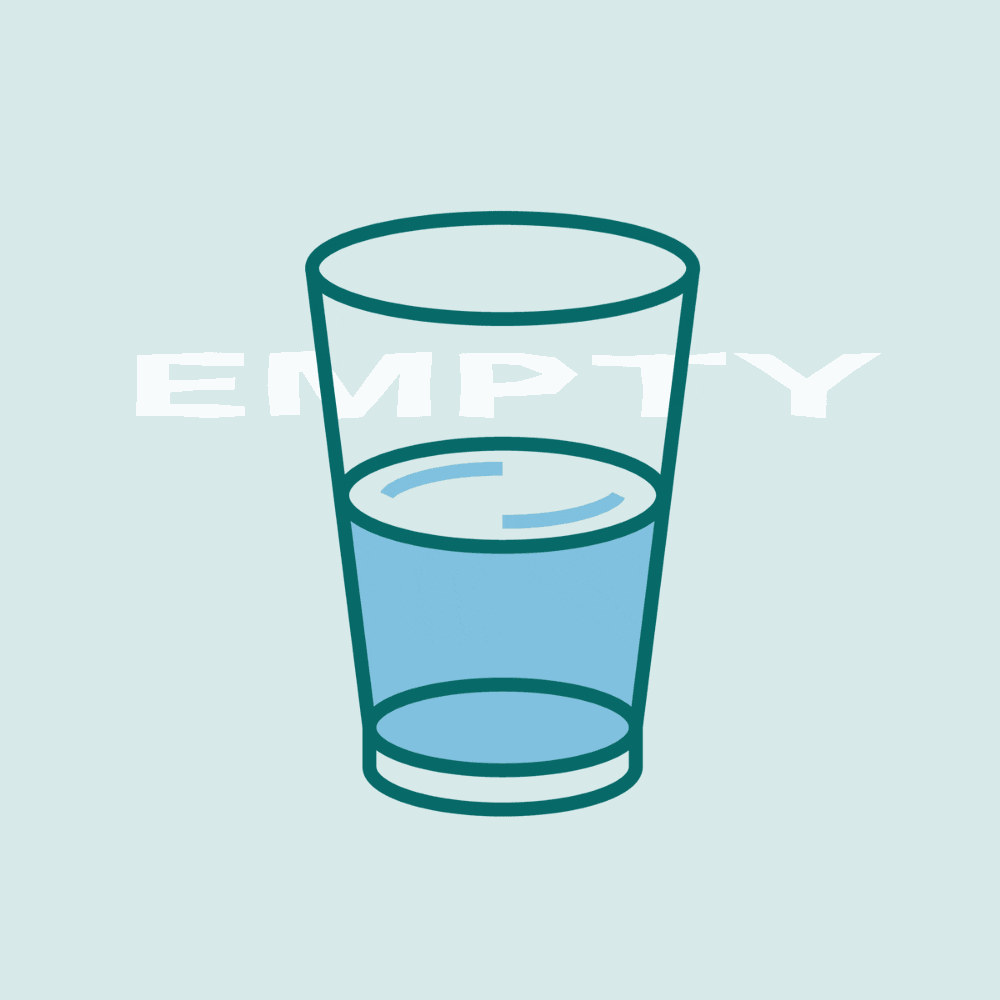What is mental health coaching?
Researched and Written by Headspace Editorial Team
Apr 22, 2024
Juggling work deadlines with family time. Setting (and actually sticking to!) your health goals. Big life events like moving, breakups, or just knowing that you need to make a change. Life is full of challenges, big questions, and decisions to make. Wouldn’t it be nice to have a sidekick supporting you with coping skills and teaching you how to tolerate distress so daily challenges don’t become overwhelming and unmanageable?
That’s where your mental health coach comes in.
Whether you need help managing everyday anxiety, sleeping restfully, or dealing with a big life transition like moving or a new job, mental health coaches are trained professionals who work with you to co-create goals and actively support you in achieving them. A coach will help you break down your goals into manageable steps, and they'll guide you through overcoming any obstacles that might come up along the way.
Read on to better understand mental health coaching, and how you can get started.
In this article
- What is a mental health coach?
- Who is mental health coaching for?
- What can coaching help me with?
- What techniques are used in mental health coaching?
- How are mental health coaches trained?
- Mental health coach vs. therapist: What’s the difference?
- Is mental health coaching right for me?
- Getting started with mental health coaching
What is a mental health coach?
Mental health coaching takes a goal-oriented approach to tackling a range of life’s everyday challenges, from sleep issues and creating healthy routines to communication and stress management. Take this definition from the National Board for Health and Wellness Coaching (NBHWC): “Coaches support clients in mobilizing internal strengths and external resources, and in developing self-management strategies for making sustainable, healthy lifestyle and behavior changes.”
At its core, mental health coaching focuses on helping individuals work towards their present and future goals. This is typically done through text-based sessions grounded in personalized, quality care that flexes as needs change. Combined with self-guided resources, like meditations and mindfulness exercises, mental health coaches can work with you on a wide range of issues to improve your overall well-being.
Introducing Headspace Mental Health Coaching
2 minutes
Who is mental health coaching for?
Mental health coaching is great for anyone seeking support in addressing challenges in their present lives and setting and accomplishing their future goals. It can often act as a first level of care for anyone looking to improve their well-being. Because coaching is typically done in text-based sessions, mental health coaching is great for anyone who is looking for support that works with their schedule - you can say when and where it happens.
Mental health coaching from Headspace might be helpful if you’re looking for…
- Mental health support, but you don’t need a diagnosis or medication
- A way to text with a mental health professional, rather than meet in-person or over video
- Practical strategies and habits to improve your mental health
- Someone who can guide you and help you stay accountable as you work toward your goals
- You’re open to a commitment that includes “homework” like reading, journaling, self-assessments, or other activities to help reach your goals
- A way to care for your mental health that’s secure, confidential, and convenient

What can coaching help me with?
In short, coaches can help with emotional issues you’re struggling with. Coaching is a collaborative relationship - you’ll work with your coach to identify small steps that you can take towards your goal, and your coach will help you make adjustments as needed to keep you on track. Unlike a therapist or counselor, coaches focus on the present and what you want to accomplish in the future. Typically, coaches can work with you on everyday anxiety, issues with work, relationships, and more. They can work with you on techniques to help improve your sleep, share strategies for managing stress, or create a personalized plan and hold you accountable to any goal you’re working towards. A mental health coach can help you take the first step in your well-being journey.
What techniques are used in mental health coaching?
Mental health coaches are trained professionals who help you achieve mental health and wellness goals using a variety of different strategies and techniques, including:
- Teaching distress tolerance skills
- Encouraging journaling to increase self-awareness
- Exploring and setting SMART goals
- Mindfulness-Based Stress Reduction techniques
Additionally, coaches draw from cognitive behavioral therapy (CBT) and acceptance and commitment therapy (ACT) principles when working with members.
Watch this quick introduction to coaching
What is coaching?
2 min
How are mental health coaches trained?
At Headspace, mental health coaches are required to be nationally board certified by an accredited institution, like the NBHWC, or have earned a Master’s-level degree in a psychology related-field, have over two years of relevant experience, and 200+ hours of supervised training.
Additionally, Headspace coaches participate in The Headspace Training Institute, a comprehensive, ten-month training program designed and overseen by a team of psychologists, psychiatrists, therapists, and nationally certified coaches that focuses on evidence-based principles and techniques, such as CBT, ACT, and other wellness-based practices. Mental health coaches are trained to maintain professional boundaries and confidentiality in their relationships with clients.
Headspace’s mental health coaches support any member of any community. Our program emphasizes culturally responsive and identity-affirming care rooted in a member’s environmental and societal realities. Coaches develop an awareness and integration of their own intersecting identities, and in turn, help their members to do the same, through social justice and health equity frameworks.
"Mental health coaching is great for anyone that is looking for support that works with their schedule - you can say when and where it happens."

Mental health coach vs. therapist: What’s the difference?
Mental health coaches are dedicated to supporting you in creating positive changes in your life. You may already be familiar with our online therapy program and you might be wondering about the difference between coaching and therapy.
Goals
Therapy tends to focus on diving deeply into past or present issues, expressing emotions, and better understanding patterns of thoughts and behaviors. Different from therapy, coaching focuses on the present and what you want to accomplish in the future. Rather than digging into why a challenge is occurring in your life, coaching helps you to work on immediate goals and creates an action plan with you to reach them, all through private in-app text-based sessions.
Credentials
Therapists hold at least a master’s degree in psychology or a related field, and must complete licensing requirements in their state, along with a certain number of supervised clinical treatment hours. Certain types of providers, such as psychologists, hold a PhD or PsyD.
Headspace mental health coaches, on the other hand, are required to complete a certification through accredited institutions, like the NBHWC or Master’s-level degree in a psychology related-field. Headspace mental health coaches are also required to complete additional training including two years of relevant experience, and 200+ hours of supervised training through the Headspace Training Institute.
Diagnoses
Mental health coaches cannot diagnose mental health disorders, although they can recommend that a client seek a diagnosis and further care from a therapist. They can identify a care plan that may improve a psychological condition, but they are not trained to treat mental health disorders, such as Major Depressive Disorder or Generalized Anxiety Disorder.
Medication
Mental health coaches do not prescribe medication. They can recommend a client see a psychiatrist or psychiatric nurse practitioner for a medical evaluation.
A care team
Coaching is an excellent complement to therapy and psychiatry sessions. Coaches can serve as a check-in between appointments with your therapist or psychiatrist. They can help you with challenges that may arise in between your therapy or psychiatry sessions. They can also help you recall insights and lessons from previous sessions and provide you with the opportunity to practice new skills regularly. And, they can help you work on exercises that your therapist or psychiatrist may assign.
Is mental health coaching right for me?
Mental health coaching can be a powerful tool for those looking to make meaningful changes in their lives. But how do you know if it’s the right fit for you? Here are a few simple signs that coaching might be what you need:
-
Feeling stuck: If you’re feeling stuck in life or finding it hard to overcome obstacles in your personal or professional life, a mental health coach can help you get unstuck by identifying actionable steps.
-
Needing accountability: Whether you’re setting new goals or building healthier habits, a coach can provide the support and accountability needed to stay on track.
-
Managing stress: If stress is overwhelming you and you're looking for tools to stay calm and focused, a coach can guide you in managing your emotions and maintaining a balanced mindset before seeing a therapist for further assistance.
-
Setting and achieving goals: If you have specific goals but need help creating a plan or staying motivated, coaching can offer the structure and encouragement to turn your intentions into reality.
If any of these resonate with you, then mental health coaching could be the right path to explore. With Headspace, you get 50% off your first month of coaching. You’ll be matched with a mental health coach who can help you work toward your goals with science-backed guidance and tools that make the process feel manageable and supportive.
Getting started with mental health coaching
Headspace mental health coaches are trained experts who provide one-on-one care and support to those dealing with everyday anxiety, stress, and major life challenges — on your own time, from anywhere, all in the Headspace app. Learn more about how to get started with mental health coaching and what to expect from your first session.
Sources:
National Board for Health & Wellness Coaching. (n.d.). NBHWC Health & Wellness Coach Scope of Practice. https://nbhwc.org/scope-of-practice/. Accessed on June 11, 2025.
One app for everything your mind needs
Get your first month for $99.99/month $49.99 - Limited time only
- Three 30-minute text-based sessions per month
- A personalized plan from your coach
- Learn new skills and healthy habits
- Get support when things get tough
- Schedule sessions after work hours and on weekends
- Includes the full Headspace meditation and sleep library
Cancel anytime. Automatically renews monthly at $99.99. Sessions don’t carry over month-to-month

Read more about mental health coaching

Bouncing forward with resilience

How to build a firm sense of identity and why it matters

There will always be more: overcoming Scarcity Mindset

Wellness Wheel

Stay in the loop
Be the first to get updates on our latest content, special offers, and new features.
By signing up, you’re agreeing to receive marketing emails from Headspace. You can unsubscribe at any time. For more details, check out our Privacy Policy.
- © 2026 Headspace Inc.
- Terms & conditions
- Privacy policy
- Consumer Health Data
- Your privacy choices
- CA Privacy Notice
